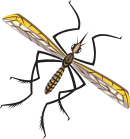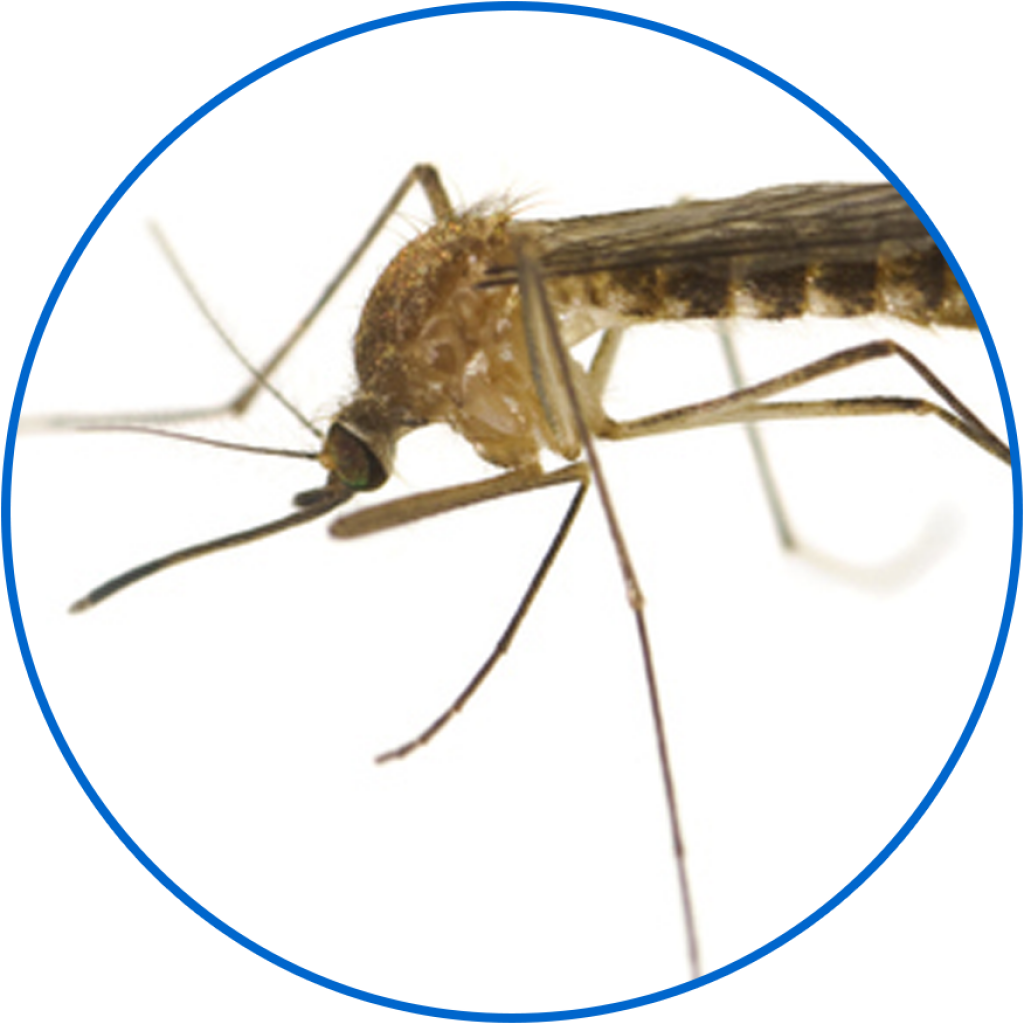Larval Control Spraying Frequently Asked Questions
Larval surveillance and control, which targets immature mosquitoes that may be developing in stagnant water in back yard sources is a critical component of any effective Integrated Vector Management (IVM) program. When mosquitoes are eliminated prior to becoming adults, they cannot pose a health threat or become a nuisance. Larval mosquito surveillance and control are the largest and most extensive aspects of the Sacramento-Yolo Mosquito and Vector Control District’s mosquito control program.
A. Larval control is an important aspect of an effective mosquito control program. It helps reduce mosquito populations in areas with high mosquito counts to protect the health of residents from mosquito transmitted diseases such as West Nile virus. The District wants to reduce the number of immature mosquitoes developing in variety of back yard sources. If mosquitoes are targeted while they are still in the water, they will not have the opportunity to become flying adults that can bite and become a public health threat. Mosquitoes found in this area are more than a nuisance and can transmit West Nile virus. This disease is widespread throughout Sacramento County and these mosquito control treatments aim at reducing mosquito populations.
A. The product, VectoBac® WDG, is environmentally friendly, approved for application on organic crops, and registered with the U.S. Environmental Protection Agency and the California Department of Pesticide Regulation. The active ingredient in this product is Bacillus thuringiensis israelensis (Bti), a microbe found naturally in soil. For more information, please visit the Product Manufacturer.
A. Bti is used to prevent mosquitoes at the larval stage from surviving in standing water. It makes proteins that are toxic to immature mosquitoes (larvae), preventing them from developing into flying adult mosquitoes. This may lessen the need to spray for adult mosquitoes in the future.
A. Risk to the general public from the use of Bti is minimal. It has no effect on people, pets, plants, or wildlife at the amounts used for mosquito control. In fact, little to no direct toxicity to non-target insects has been observed with this product.
A. You will see and hear a slow moving District vehicle down your street. The truck has a mounted fogger in the back that will be spraying out the material in small droplet sizes that resemble a very fine mist. The treatment will occur quickly and should last no longer than 45 minutes.
A. The treatments will be conducted in the early morning hours between 3:00 am -5:00 am. Residents may choose to stay indoors during and for 30 minutes following the application as a best practice to reduce exposure.
A.Residents should not see any visual signs of the treatment on their property. On rare instances a slight dusting may be observed which can be easily rinsed off. Repeated applications in other parts of the United States have shown no problems with spotting or staining on outdoor structures.
A. Since Bti is a biological agent, it tends to break down quickly in the environment, typically a few hours after sunlight.
A. Mosquito control is a community problem. The District is urging residents to do their part to eliminate stagnant water around the home. Working together will increase our chances of ridding the mosquito from our community. Removing mosquito breeding sources is the best long term solution to reduce mosquitoes on your property and the risk of disease transmission in your neighborhood.
- Dump and drain standing water around your property.
- At least once a week check your back yard and drain any stagnant water from buckets, pet dishes, plant saucers, tires, bird baths, wheelbarrows and other containers.
- Check gutters and drains for water.
- Call the District to report mosquito activity. provider promptly.
Did You Know?

‘Mosquito Hawks’, as they are often called, are actually Crane Flies and they do not eat mosquitoes. Crane flies are harmless and are beneficial insects.


